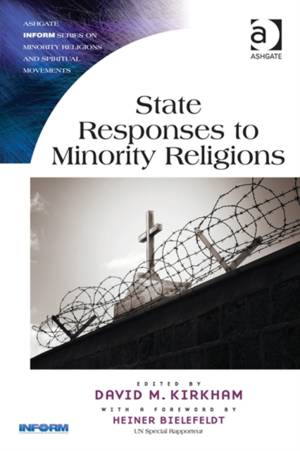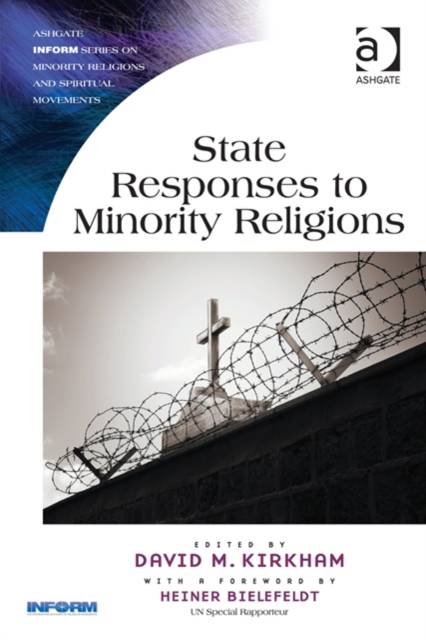
Je cadeautjes zeker op tijd in huis hebben voor de feestdagen? Kom langs in onze winkels en vind het perfecte geschenk!
- Afhalen na 1 uur in een winkel met voorraad
- Gratis thuislevering in België vanaf € 30
- Ruim aanbod met 7 miljoen producten
Je cadeautjes zeker op tijd in huis hebben voor de feestdagen? Kom langs in onze winkels en vind het perfecte geschenk!
- Afhalen na 1 uur in een winkel met voorraad
- Gratis thuislevering in België vanaf € 30
- Ruim aanbod met 7 miljoen producten
Zoeken
State Responses to Minority Religions. Edited by David Kirkham
€ 102,45
+ 204 punten
Omschrijving
The response of states to demands for free exercise of religion or belief varies greatly across the world. In some places, religions come as close as imaginable to autonomous existences with little interference from government. In other cases religion finds itself grinding out a meagre living, if at all, under the jealously watchful eye of the state. This book provides a legal and normative overview of the variety of responses to minority religions available to states. Exploring case studies ranging from Islamic regions such as Indonesia, Pakistan, and the wider Middle East, to Western Europe, Eastern Europe, China, Russia, Canada, and the Baltics, contributors include international scholars and experts in law, sociology, religious studies, and political science. This book offers invaluable perspectives on how minority religions are currently being received, reviewed, challenged, or ignored in different parts of the world.
Specificaties
Betrokkenen
- Uitgeverij:
Inhoud
- Aantal bladzijden:
- 304
- Taal:
- Engels
- Reeks:
Eigenschappen
- Productcode (EAN):
- 9781409465799
- Verschijningsdatum:
- 6/12/2013
- Uitvoering:
- Paperback
- Formaat:
- Trade paperback (VS)
- Afmetingen:
- 156 mm x 234 mm
- Gewicht:
- 426 g

Alleen bij Standaard Boekhandel
+ 204 punten op je klantenkaart van Standaard Boekhandel
Beoordelingen
We publiceren alleen reviews die voldoen aan de voorwaarden voor reviews. Bekijk onze voorwaarden voor reviews.








